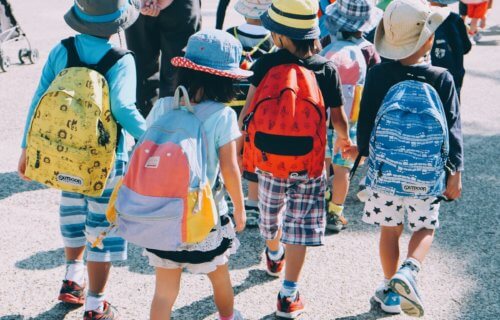PROVO, Utah — A little bit of culture can go a long way academically for students, according to a new study. Researchers from Brigham Young University, Johns Hopkins University, and the Heritage Foundation say culturally enriching field trips, such as class excursions to local science museums or art venues, lead to better grades, superior in-class performance, and greater cultural conscientiousness among middle-schoolers.
Field trips are an integral aspect of the American educational experience. A few treks out of the classroom per year provide a much-needed respite from books and pencils. Yet, recent years have seen a notable decline in school field trips across U.S. schools and districts, especially among minority students attending academically low-performing schools. The pandemic has only accelerated this trend, making it even more difficult for teachers and administrators to justify out-of-classroom experiences.
This new research is among the first to tangibly quantify the academic and educational benefits of field trips that emphasize culture. Study authors report students who attend multiple culturally enriching class trips per year generally score higher on tests, perform better in the classroom, and show increased cultural conscientiousness over time.
“Contrary to practice where schools, facing accountability pressures, trade extracurriculars for increased seat time, we found that there’s no harm to academics by taking time out of the classroom,” says lead study author Heidi Holmes Erickson, assistant professor of educational leadership at BYU, in a university release. “It’s possible to expose students to a broader world and have culturally enriching curriculum without sacrificing academic outcomes, and it may actually improve academic outcomes.”
Field trips have the biggest impact during middle school
Using an experimental design, study authors randomly assigned groups of fourth and fifth graders attending 15 elementary schools in the Atlanta, Georgia area to participate in three cultural field trips during a single school year. The three excursions featured a trip to an art museum, a live theater show, and a symphony concert.
Students who were lucky enough to attend all three events scored higher on end-of-year exams, garnered higher overall grades, received fewer behavioral complaints, and had better attendance records. Notably, these benefits were at their strongest when students entered middle school.
“We anticipated that field trips wouldn’t harm test scores. However, we started seeing academic improvements and realized that students who participated in these field trips were doing better in class,” Prof. Erickson notes. “One potential reason for this is that field trips expand students’ world concept and expose them to new ideas. Similarly, students might be more engaged in school thanks to field trips. Students find school more exciting and want to try harder in class.”
Cultural trips leave an impression
Going on cultural field trips also promotes a greater life-long interest in the arts. Students attending multiple field trips were 12 percent more likely to want to “consume arts in the future” than the average youngster. Similarly, students who went on multiple cultural field trips were nearly 14 percent more likely to agree with the statement, “I believe people can have different opinions about the same thing.”
So, besides just promoting better academic grades, this study also indicates cultural field trips help foster more well-rounded, perceptive individuals as well.
“Parents are very interested in the academic quality of their child’s school, but they’re also interested in the social skills and social engagement habits they develop. Cultural field trips are easy ways to help facilitate both,” Prof. Erickson says.
Study authors are hopeful these findings will prove useful to school educators and policymakers as they begin to consider planning post-pandemic field trips.
“Field trips have been non-existent for the last two years, and many cultural institutions like museums and science centers were closed. Schools want to make up learning loss from the pandemic and might feel pressure to sacrifice a well-rounded education for increased seat-time,” Prof. Erickson concludes. “Field trips might be the first thing to go. Addressing student learning loss is crucial, but schools should be thoughtful in their approach.”
The study is published in the Journal of Human Resources.
